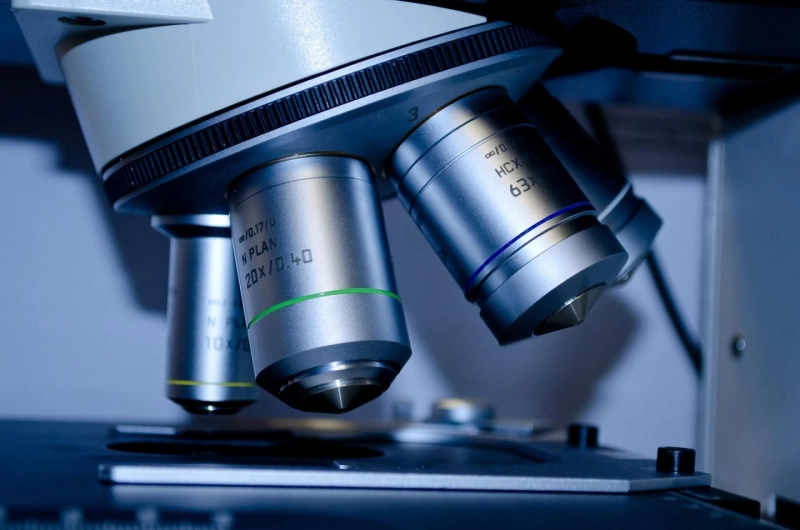In the vast expanse of human history, the quest for knowledge has led to some of the greatest scientific discoveries, transforming our understanding of the world and the universe. From the ancient philosophers who pondered the nature of existence to the modern scientists who decode the secrets of the genome, each breakthrough has been a milestone in our journey of discovery. These remarkable achievements have not only expanded our horizons but have also paved the way for technological advancements that have reshaped our daily lives.
The Dawn of Scientific Inquiry
The roots of scientific discovery can be traced back to ancient civilizations. The Greeks, for instance, made significant strides in fields such as mathematics, astronomy, and medicine. Pioneers like Archimedes and Hippocrates laid the groundwork for future generations, setting the stage for a systematic approach to understanding natural phenomena.
The Renaissance and the Age of Enlightenment
The Renaissance period marked a resurgence of scientific inquiry, driven by curiosity and a desire to explore the unknown. Figures like Galileo Galilei and Nicolaus Copernicus challenged conventional wisdom, leading to groundbreaking discoveries in astronomy. The heliocentric model of the solar system, proposed by Copernicus, revolutionized our understanding of the cosmos, while Galileo\'s telescopic observations confirmed the vastness and complexity of the universe.
The Industrial Revolution
The Industrial Revolution was a period of profound change, characterized by rapid advancements in technology and engineering. James Watt\'s improvements to the steam engine and Michael Faraday\'s work on electromagnetism exemplify the era\'s innovative spirit. These discoveries not only propelled the industrial age but also laid the foundation for modern physics and engineering.
The Twentieth Century: A Golden Age of Discovery
The twentieth century witnessed an explosion of scientific breakthroughs that have fundamentally altered our lives. Albert Einstein\'s theory of relativity redefined our understanding of space and time, while quantum mechanics unveiled the mysterious world of subatomic particles. The discovery of the structure of DNA by James Watson and Francis Crick opened new avenues in genetics, revolutionizing medicine and biotechnology.
The Digital Revolution
In recent decades, the advent of digital technology has sparked a new wave of discoveries. The development of the internet, artificial intelligence, and quantum computing are transforming industries and society at an unprecedented pace. Scientists continue to push the boundaries, exploring frontiers such as space travel, renewable energy, and nanotechnology.
The Ongoing Quest for Knowledge
As we move further into the 21st century, the quest for knowledge remains as vibrant and dynamic as ever. Today\'s scientists are not only building upon the foundations laid by their predecessors but are also venturing into uncharted territories. The exploration of space, for instance, has taken on new dimensions with missions to Mars and the ongoing search for exoplanets that could potentially harbor life.
Breakthroughs in Health and Medicine
One of the most exciting arenas of scientific discovery is health and medicine. The mapping of the human genome, a monumental achievement in itself, has paved the way for personalized medicine, where treatments can be tailored to an individual\'s genetic makeup. Advances in biotechnology, such as CRISPR gene editing, hold the promise of curing genetic diseases and extending human lifespan. Meanwhile, the rapid development of vaccines, as seen during the COVID-19 pandemic, showcases the incredible potential of modern medical research.
Environmental Science and Sustainability
In response to the pressing challenges of climate change and environmental degradation, scientific research is increasingly focused on sustainability. Breakthroughs in renewable energy sources, such as solar and wind power, are crucial for reducing our reliance on fossil fuels. Innovations in materials science, such as biodegradable plastics and advanced recycling techniques, are essential for addressing the global waste crisis. Furthermore, understanding and protecting biodiversity has become a key area of study, as scientists work to preserve the delicate balance of our planet\'s ecosystems.
The Future of Scientific Discovery
The future of scientific discovery promises to be as revolutionary as the past. With the rise of interdisciplinary research, scientists are now collaborating across fields to solve complex problems. For instance, the intersection of biology, engineering, and computer science is driving advances in synthetic biology and bioengineering. The integration of artificial intelligence into scientific research is accelerating the pace of discovery, enabling the analysis of vast datasets and the automation of experiments.
Conclusion
Reflecting on the top scientific discoveries, it\'s evident that each breakthrough has not only expanded our understanding but also opened new possibilities for the future. From the foundational work of ancient scholars to the cutting-edge research of today, the milestones of discovery highlight the relentless human pursuit of knowledge. As we look ahead, the continued dedication to scientific inquiry holds the promise of even more transformative discoveries, ensuring that the spirit of exploration and innovation will endure for generations to come. The journey is far from over, and the next major breakthrough could be just around the corner, waiting to unlock new realms of understanding and potential.



